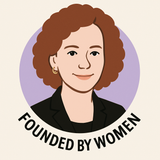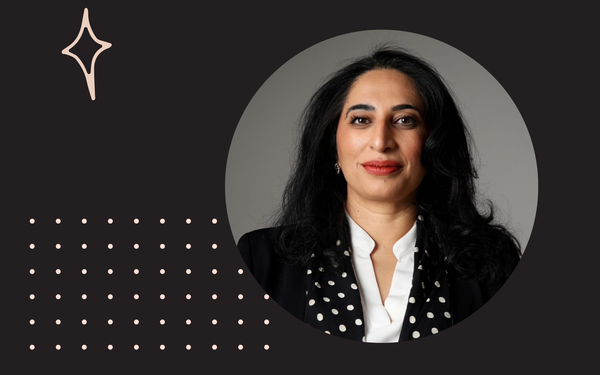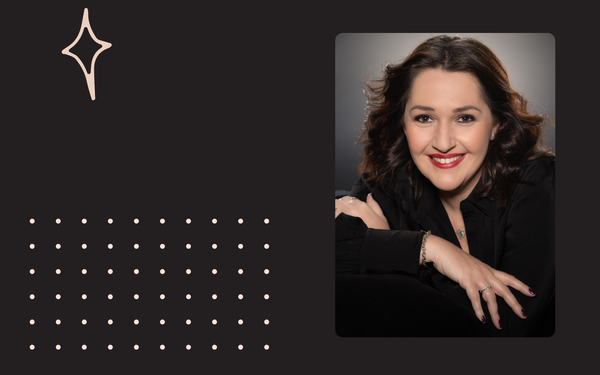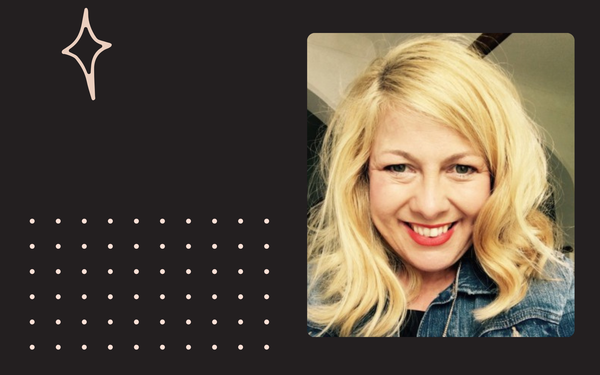Effective Communications for B2B Innovation: Polina Lorelli on Strategic Communications for Scaling Startups and Venture Capital
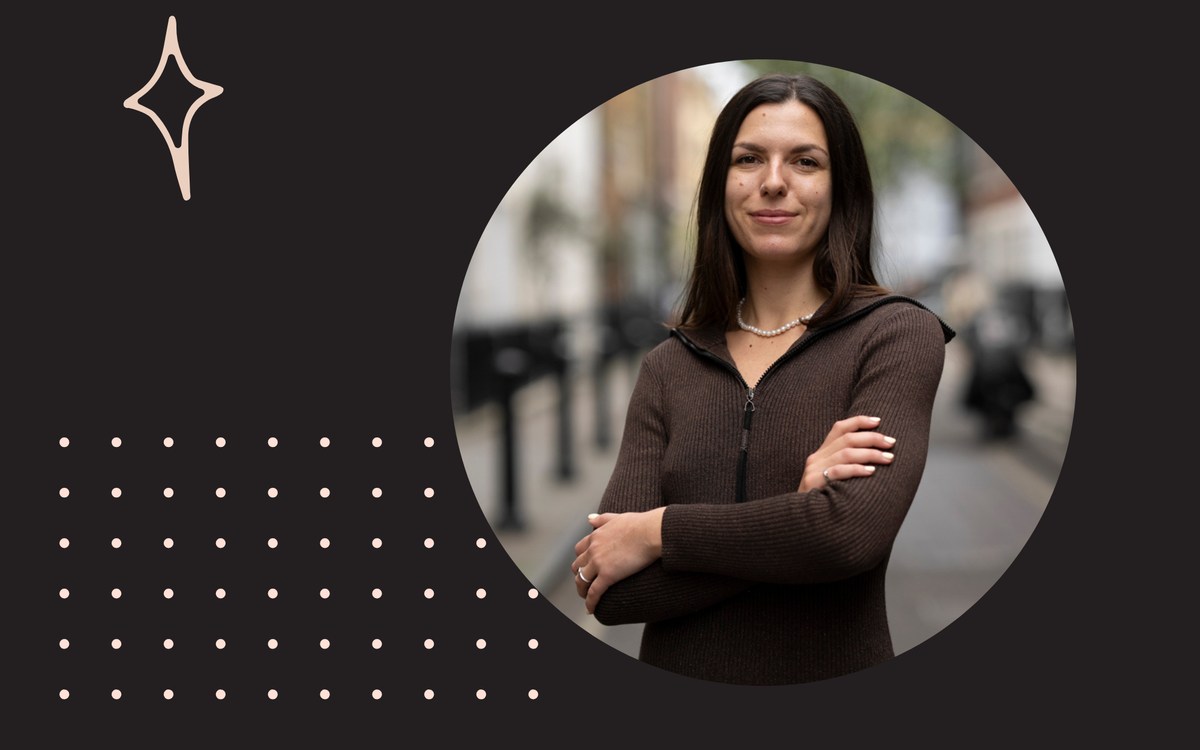
Polina Lorelli built her career bridging the gap between complex innovation and the audiences that need to understand it. After working with major global clients like the Islamic Development Bank at Freuds Communications and experiencing the startup world from the inside, she identified a critical market gap: B2B innovation companies were stuck choosing between slow, expensive agencies or limited-scope freelancers. In response, she founded PL Communications, a boutique consultancy specializing in medtech, fintech, and climate tech—sectors where sophisticated communication can be the difference between breakthrough adoption and obscurity.
A self-described "third culture kid" of Russian and Italian heritage who grew up across the world before making London home, Polina brings a unique perspective to translating founders' visions into market growth. With over 10 years of communications experience spanning global consulting, startups, and high-profile agencies like Freuds, she understands both the strategic demands of scaling businesses and the execution required to build credibility with investors, customers, and talent.
In this conversation, Polina shares how her work with billion-dollar funds and global institutions prepared her for the agility required by the innovation ecosystem, why she believes authority comes from "credibility, repetition, and resonance," and her candid perspective on the gender dynamics that still shape how female founders are perceived—and how they can position themselves as category leaders despite these challenges.
From Global Consulting to B2B Innovation Communications
You worked at Freuds, Global Office Consulting, and were a Head of Comms at a startup. You handled communications for major clients like the Islamic Development Bank and Juul Labs. What made you pivot specifically to focus on the B2B innovation ecosystem—working with founders, investors, and scale-ups across medical, financial, and climate verticals—and how did your experience with large-scale global projects prepare you for working with early-stage companies?
Essentially, two things became apparent to me during my time at a major consulting firm and then from inside a startup.
First, I saw a gap in the PR market. Clients appeared to only have an option between large, bureaucratic agencies or freelancers who couldn’t offer a full scope of strategic services. I could see an opportunity to build an agency that was agile, impactful, and deeply knowledgeable about the nuances of scaling a business, which led to the creation of PL Communications.
Additionally, I came to see that I was driven by a passion for supporting people and projects doing truly impactful things. I realised how vital sophisticated, high-quality communication is in driving awareness, adoption, and ultimately, change for critical technologies in areas including medicine, finance and climate.
My experience with large-scale global projects was, in fact, the perfect preparation for working with early-stage companies. The global projects helped me understand market dynamics, corporate motivations, and how to "translate" complex value propositions to diverse audiences. I now call on this foundation to understand the different motivations of investors, founders, and corporations firsthand. Combined with the hands-on mindset I developed working inside a startup, PL Communications operates both efficiently both at the strategy and execution level, and high-growth scale-ups often need both at the same time.
Question 2: Making Complex Innovation Accessible
Your mission is to "demystify complex ideas and translate founders' visions into product growth" for B2B startups across medtech, fintech, and climate tech. These sectors often involve highly technical concepts that can be challenging to communicate. How do you balance maintaining technical accuracy while making innovations accessible to investors, customers, and the broader market?
My starting point is always the business goal: What is the outcome that we’re trying to achieve? For founders it’s split across three main categories: hiring the best talent, boosting commercial traction or raising investment. For investors it’s improving deal-flow and getting buy-in from LPs. At any given time it might be a combination of these things.
Knowing this, we determine who needs to hear about us and what they’ll need to know. From there, I work backwards to define the message, how it should land, and which channels will be most effective. Audiences get their information from many various channels, so we’ll determine whether we should be appearing on LinkedIn, blogs, podcasts, press, or a combination. It always requires a tailored approach, because founders, investors, and customers each have different needs.
For founders, communications directly support talent acquisition and retention- people won’t join or stay with a company if they don’t know what it's working towards. For customers, product adoption depends not only on working effectively to meet a need, but also on whether they can grasp and connect with the story behind the innovation. And for investors, they need to get a strong grasp on the team, the mission, and the vision of the company they are considering supporting. When it’s early stage, this is particularly important. While when it comes to the later stage businesses, it’s all about vision to scale and having the team in place to do this.
Balancing technical accuracy with accessibility is ultimately being able to answer the ‘who’, the ‘what’ and the ‘why’ with clarity, and supporting those things with data, anecdotes, examples, and so on. It’s not about oversimplifying, but about ensuring that innovation is easily understood and trusted by the people who matter most to its growth.
Question 3: Building Impact Through Strategic Positioning
You've mentioned that "if people don't understand your product, they won't get on board" and that external credibility is crucial for business growth. For female founders across medical, financial, and climate innovation who may face additional challenges in being taken seriously, what strategies do you recommend for building authority and positioning their companies as category leaders?
We need to start moving away from qualifying people’s roles with the addition of their gender and start to challenge people on the assumption that when someone says ‘CEO’ or ‘founder’ that those people will always be men.
That said, it does remain important to champion women who are breaking down barriers and we should highlight their achievements. I have also made some observations about tendencies some women have in a business setting that could hold them back, and more awareness of these things can help us all combat them. For example, women sometimes position themselves more modestly than their male counterparts, while at the same time some male founders are confidently inflating projections. The perceived lack of confidence can translate into missed opportunities, even when the quality of the work itself is excellent.
I find that the best way to build self-belief is to surround yourself with people who champion you behind closed doors, who will introduce you to the right networks, and who you can trust to back you, while you do the same for them. Overcoming perfectionism and imposter syndrome is often just as important as developing technical skills.
When it comes to positioning companies as category leaders, the fundamentals are the same regardless of gender: clear and consistent messaging, a strong understanding of your audiences, choosing the right channels, and executing with precision.
Authority comes from credibility, repetition, and resonance. Whether you are male or female, building external visibility and confidence around your product or service is what earns trust, attracts investment, and ultimately secures you as a leading voice in your industry.
Are you a woman leader with an inspiring journey to tell? Founded by Women is on a mission to elevate and amplify the voices of women making an impact.
If you're breaking barriers, driving change, or paving the way for others, we’d love to feature your story. Get in touch with us today!
👉 hi@foundedbywomen.org
